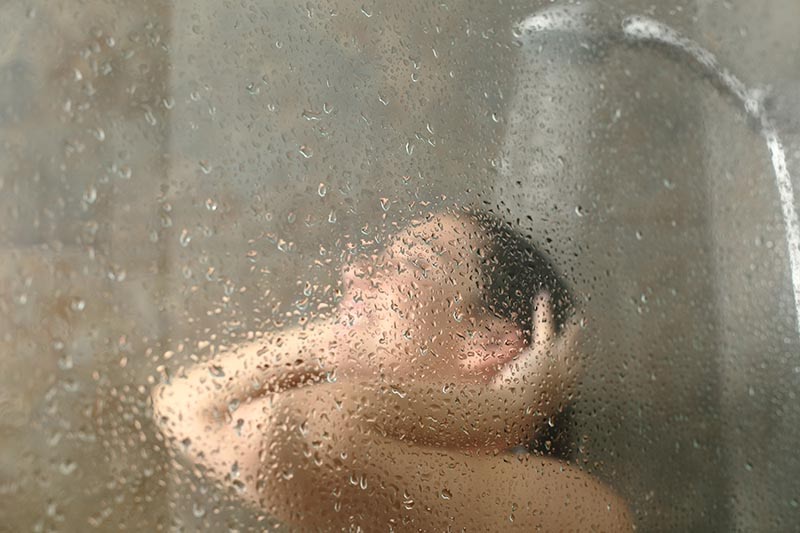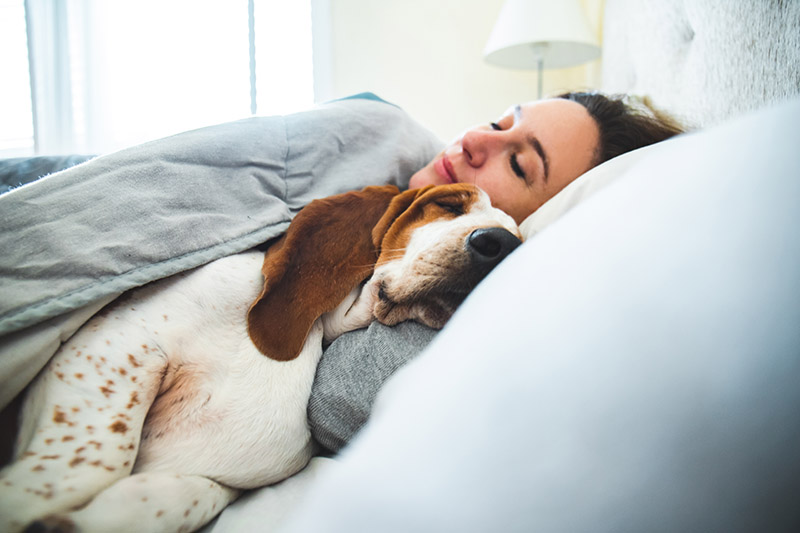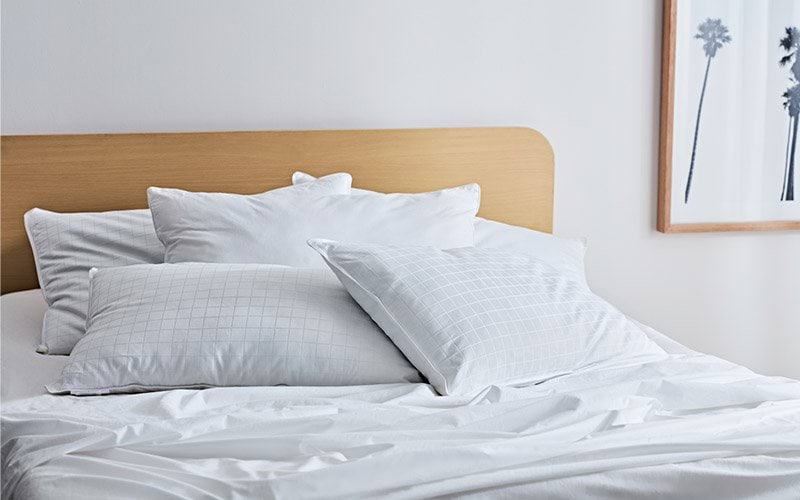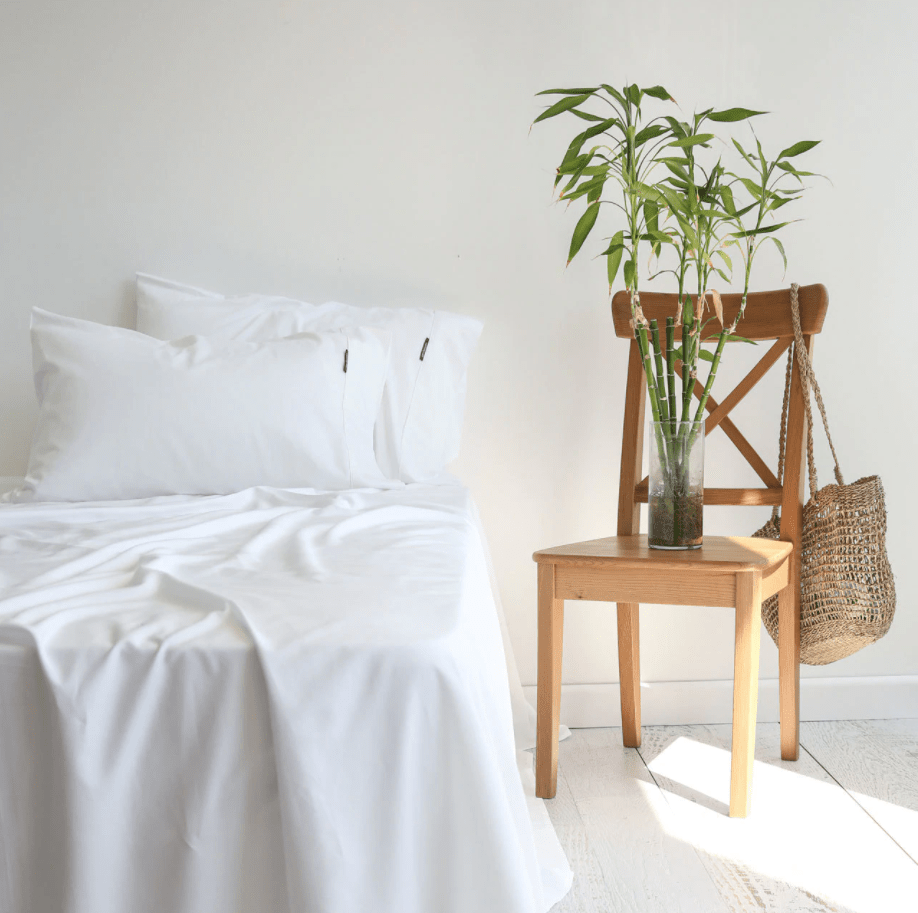5 Ways to Sleep Better for Allergy Sufferers
Posted by The Canningvale Team on 16th Sep 2020
Allergies can cause major distraction and discomfort during the day. And sadly unlike other sicknesses that you can sleep off, allergies can haunt you even during bedtime, keeping you from both falling and staying asleep.
Allergy symptoms can range from nasal congestion, itchy eyes and nose, sneezing and runny nose to difficulty in breathing. In such cases, it is still best to consult with your doctor. Then, consider these five simple ways to sleep better with allergies.
Keep your bedroom clean
Airborne particles from grass, plants and trees can trigger allergic rhinitis to some. If you’re one of them you might want to keep them from lurking inside your home especially your bedroom. Schedule a regular cleaning time to avoid common allergens such as dust mites, pollen, pet dander and mould.
Depending on the pollen count outside, you may also consider shutting your doors and windows and use a high-efficiency particulate air (HEPA) filter in your bedroom to further protect your home from allergens and in turn, have a restful sleep.

Take a quick shower before bedtime
One of the common causes of respiratory allergies is pollen and it peaks in the spring or during the months of October to January. Taking a shower before heading to your bedroom can help wash away the pollen that you might have collected during the day. Make sure to wash your hair thoroughly and wipe your eyes and lids with baby wipes to get rid of microscopic pollen.
If you went outdoors during months with high pollen count, it is advisable to change your clothes outside the bedroom as pollen might stick to your clothes and you wouldn’t want that hanging around your bedroom.

Avoid sleeping with your pets
We know it can be hard to resist sleeping with your fur buddy as it provides some level of comfort. However, if you’re suffering from respiratory allergies, you might want to rethink this.
Your cat, dog or any other pet can leave pet dander on your bedroom which is made up of flakes of their dead skin. When left uncleaned, it may trigger allergies and cause further discomfort.
Luckily, you can avoid this by refraining from sleeping with your pet and keep them off your bed if possible. Then, make sure to bathe and brush your furry friend at least once a week to reduce dander in the home. Clean up their favourite spots and your carpets as well for an allergy-free yet pet-friendly home.

Replace your pillows regularly
Similar to your pets, your dead skin cells, dirt and other bacteria can accumulate in your pillowcases. And in your pillow’s two-year mark, a portion of its weight can be attributed to dust mites and their droppings. Make sure to replace your pillow before this happens and if it’s still new, wash them thoroughly every few months.
When selecting your new pillows, also take your allergies into consideration. While feather pillows are comfortable, it is better to go for those with hypoallergenic and synthetic fillings or polyester, latex, memory foam or microfibre. It's a good idea to get some pillow protectors that have an anti-microbial treatment which inhibits the growth of bacteria, mould and dust mites.

Get hypoallergenic bed linen
Aside from your pillows, try investing in hypoallergenic bedsheets and quilt covers as they are also in close contact with your body. Hypoallergenic bed linen such as bamboo sheets and quilt covers help stop allergens from accumulating in your mattress, keeping allergies at bay.
Then like what we’ve recommended for your pillows, make sure to wash your sheets regularly to keep them free from dead skin, dust and pollen.

All in all, cleanliness is still one of the best ways to sleep better with (and even without) allergies. Make sure to keep yourself and your bedroom free from dust mites, pollen, pet dander and mould that might trigger any discomfort. And if symptoms persist, consult your doctor immediately to address any discomfort that may keep you from getting a great night sleep.
You Might Also Like:
-The Simplest Remedy for Puffy or Tired Eyes


 Sheet Sets
Sheet Sets







 Australian Dollar
Australian Dollar
 New Zealand Dollars
New Zealand Dollars
 US Dollars
US Dollars
